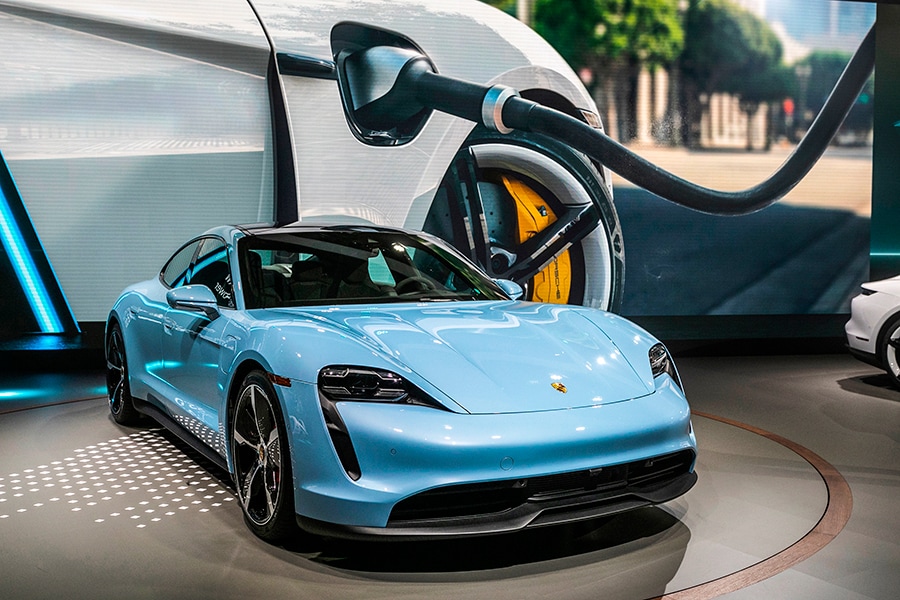
German automakers are charged up and ready to take on Tesla
German engineering is confronting Silicon Valley audacity head-on, with the future of the German economy at stake.
 The Porsche Taycan 4S electric car is seen during its world premier at AutoMobility LA on November 20, 2019 in Los Angeles, California. The four-day press and trade event precedes the Los Angeles Auto Show, which runs November 22 through December 1.
The Porsche Taycan 4S electric car is seen during its world premier at AutoMobility LA on November 20, 2019 in Los Angeles, California. The four-day press and trade event precedes the Los Angeles Auto Show, which runs November 22 through December 1.
Image: David McNew/ Getty Images
HOCKENHEIM, Germany — The Porsche Taycan rocketed from a standstill so fast that my skull banged against the headrest and my vision went blurry.
It was a demonstration of what can happen when German engineers apply their brainpower to electric cars. And it offered a clue to how German luxury carmakers hope to prevent Tesla from destroying the country’s most important export industry.
A year after Porsche brought the Taycan to market, Mercedes-Benz and Audi are on the verge of rolling out their first luxury cars that were designed from scratch to run on batteries, rather than simply being awkward conversions of gasoline models.
These new purebred electric models will determine whether German carmakers can retain their hegemony in the high end of the market in the face of an onslaught from Tesla, which is encroaching on their turf — literally — by planting a factory in a forest outside Berlin. German engineering is confronting Silicon Valley audacity head-on, with the future of the German economy at stake.
©2019 New York Times News Service




